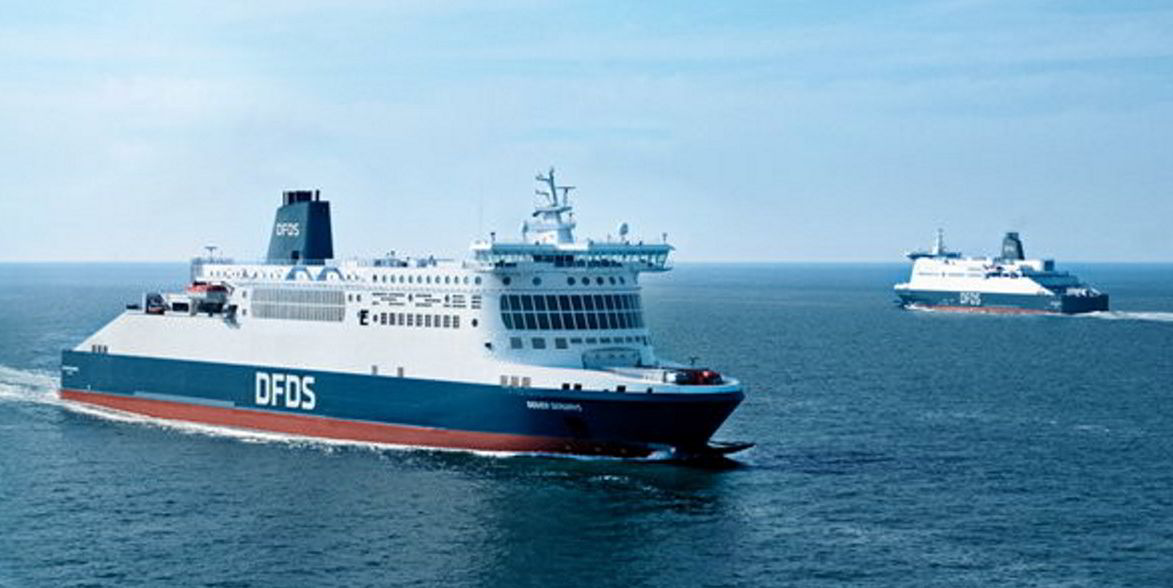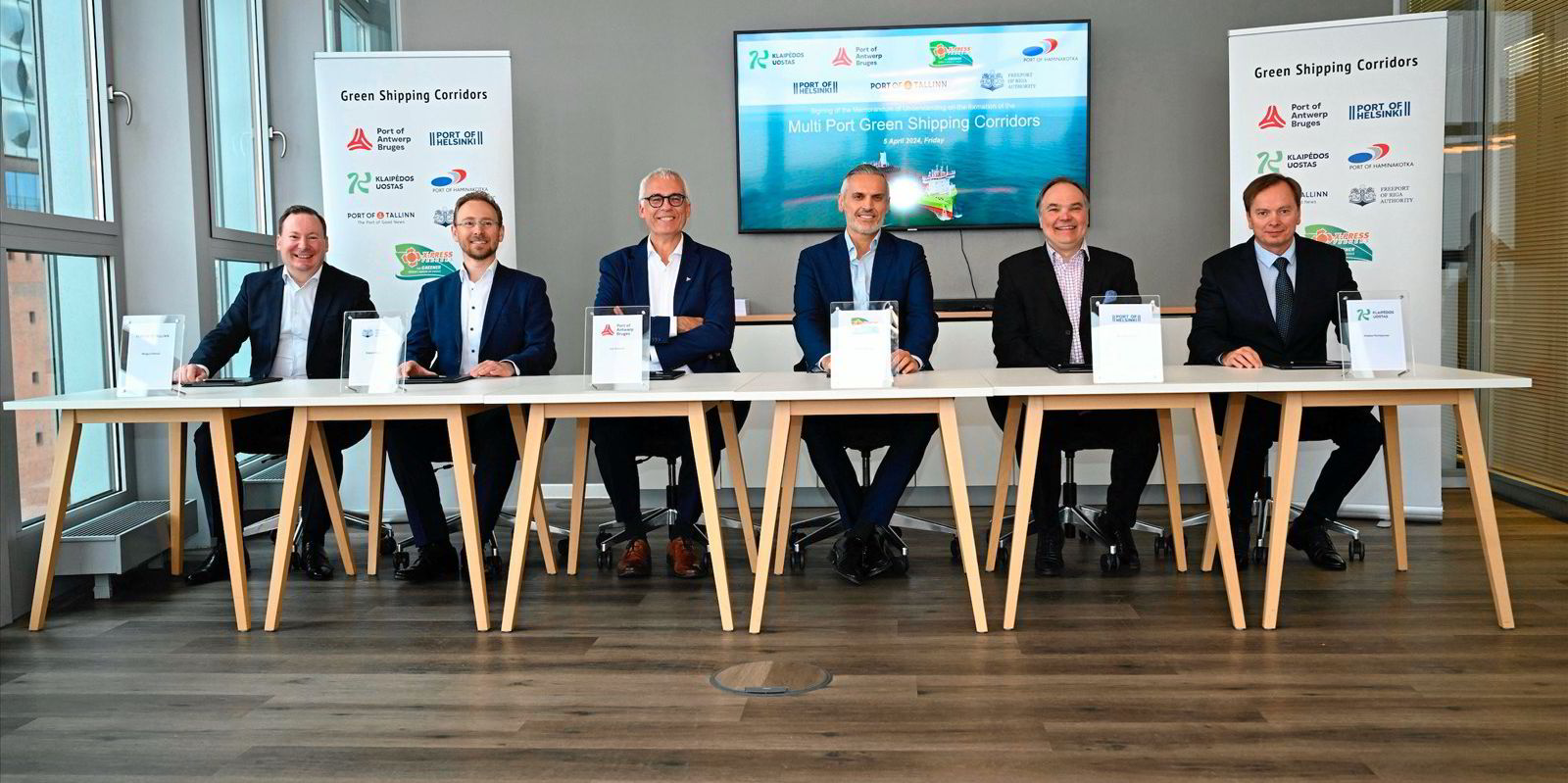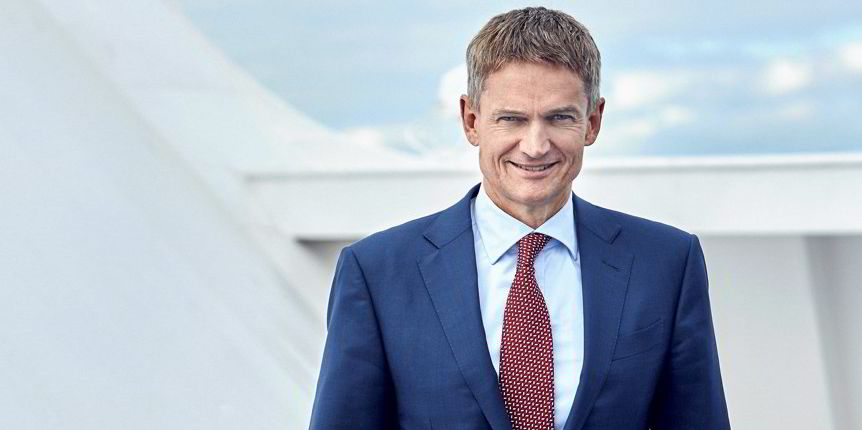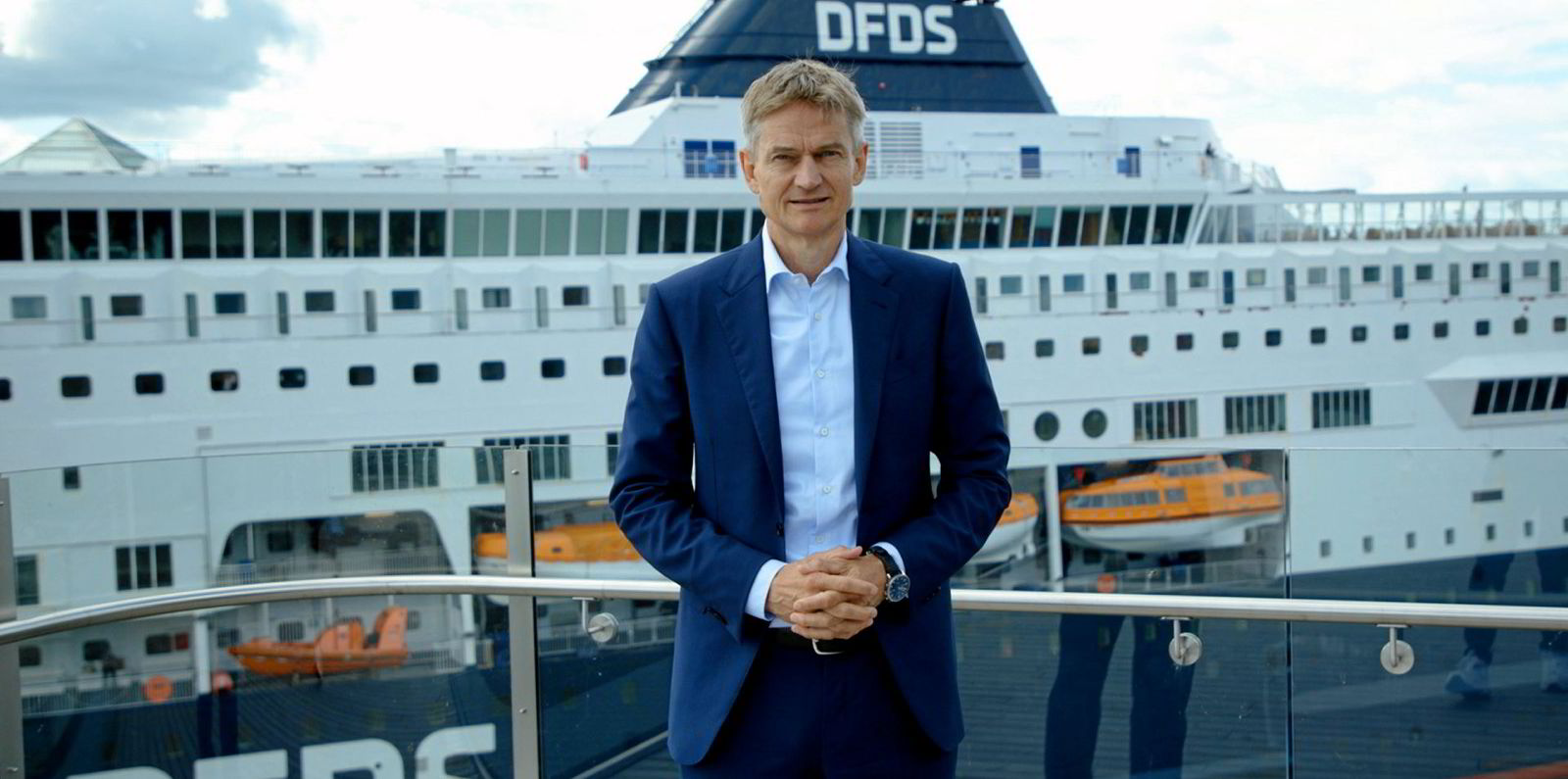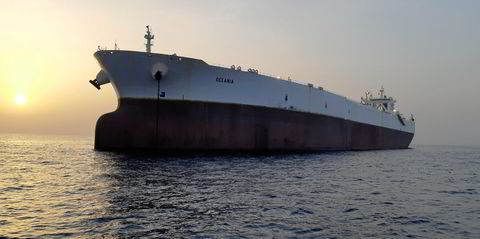DFDS has confirmed plans to put a pair of 100% electric-powered ferries on a cross-channel route between the UK and the European continent by 2030.
The announcement follows a visit by the UK Minister for Investment & Regulatory Reform, Lord Dominic Johnson, to DFDS’ Copenhagen offices this week.
The Danish ferry operator plans to build up to six battery-powered vessels, with the first two in service by 2030.
It also said it has plans for a pair of vessels that will be able to use methanol as a fuel and a pair that can be run on ammonia within the same six-year time span in what it calls its “vessels of tomorrow” programme.
The UK government is set to launch a funding competition for British businesses to run feasibility studies on international routes.
DFDS has 12 routes connecting the UK to France, Germany, the Netherlands, Sweden and Denmark. It has three UK-flagged vessels.
DFDS and the Port of Dover in southeast England are part of a “Green Corridor at the Short Straits” consortium that won funding in 2022 and last year to determine the technical and economic feasibility of electric power solutions for ferries running out of Dover.
“With its superb infrastructure, technological advances and proximity to Denmark, the UK is the partner of choice for green investments like this,” said Johnson.
“DFDS’ commitment highlights the value of our trading relationship and the strategic importance of the English Channel shipping route.
“The UK government remains steadfast in its aim to reach net zero by 2050, and the green transition of the cross-channel shipping will create British and Danish jobs and strengthen both our economies.”
DFDS chief executive Torben Carlsen reiterated that new vessels with new power systems are going to require more investment than traditional ferries.
“The transition is not going to be easy. It requires significant investments in innovation, technology and infrastructure, and collaboration and partnerships between the public and private sectors. But I am confident that we will succeed,” he said.
“DFDS will invest in green vessels and cooperate with ports and governments on both sides of the channel to decarbonise cross-channel transportation.”
The DFDS announcement comes amid a bigger picture of government support for decarbonising the UK shipping industry.
Last year, the government, through the UK Shipping Office for Reducing Emissions, announced the launch of an International Green Corridor Fund with £1.5m ($1.9m) allocated for feasibility studies of routes between the UK and international partners.
And from 16 April, British and Irish companies can seek grant support through Innovate UK to run green corridor feasibility studies on routes connecting the two countries.
